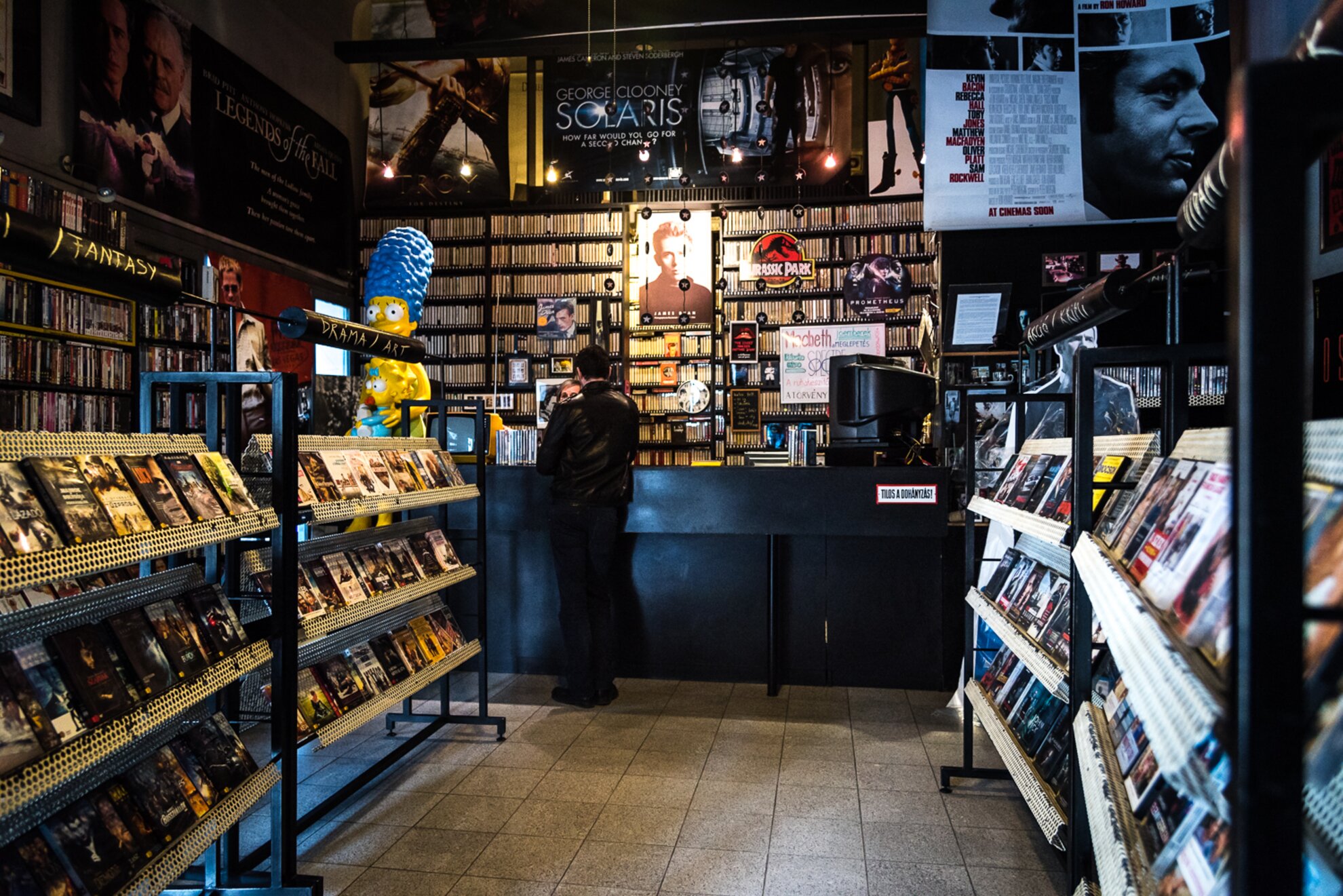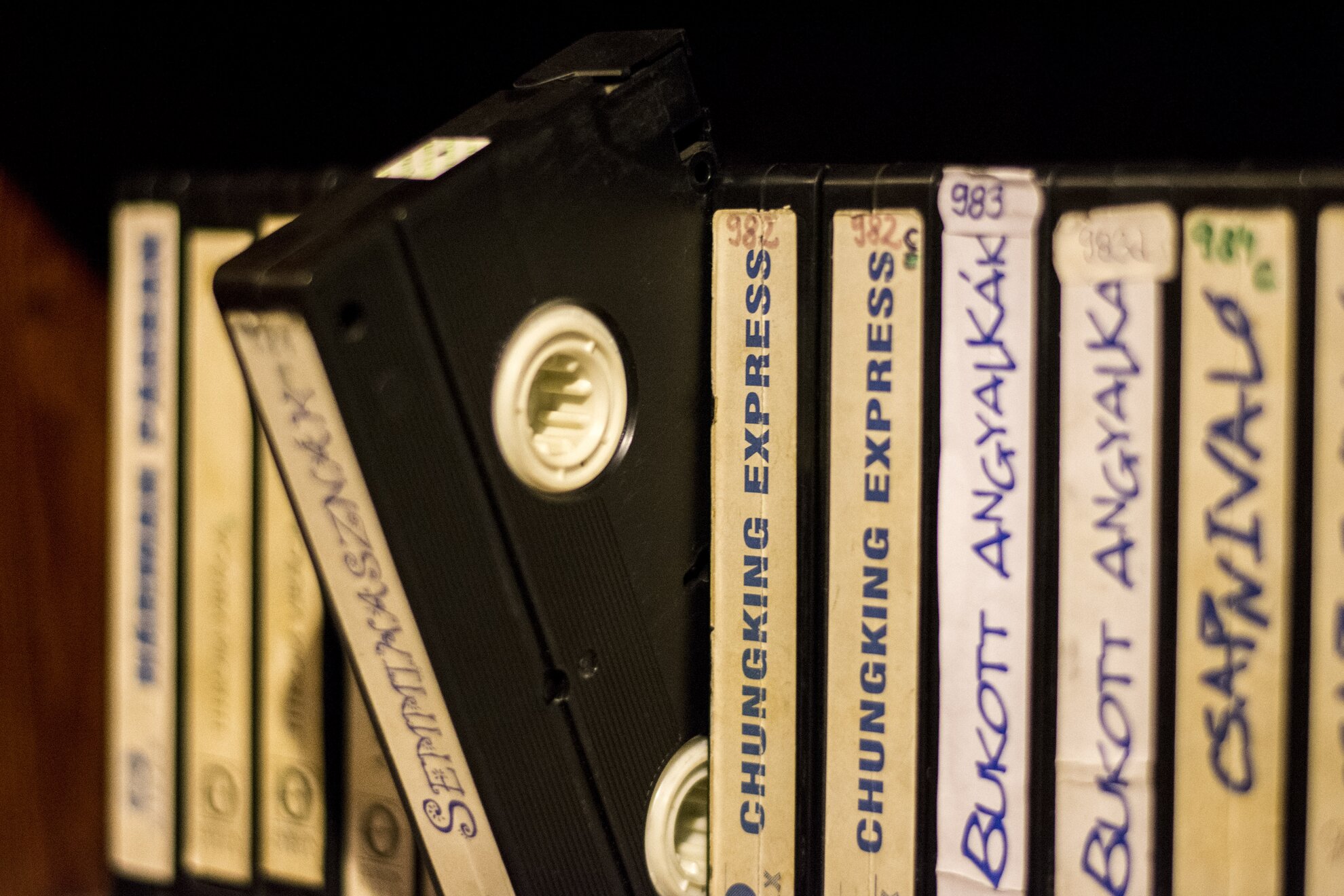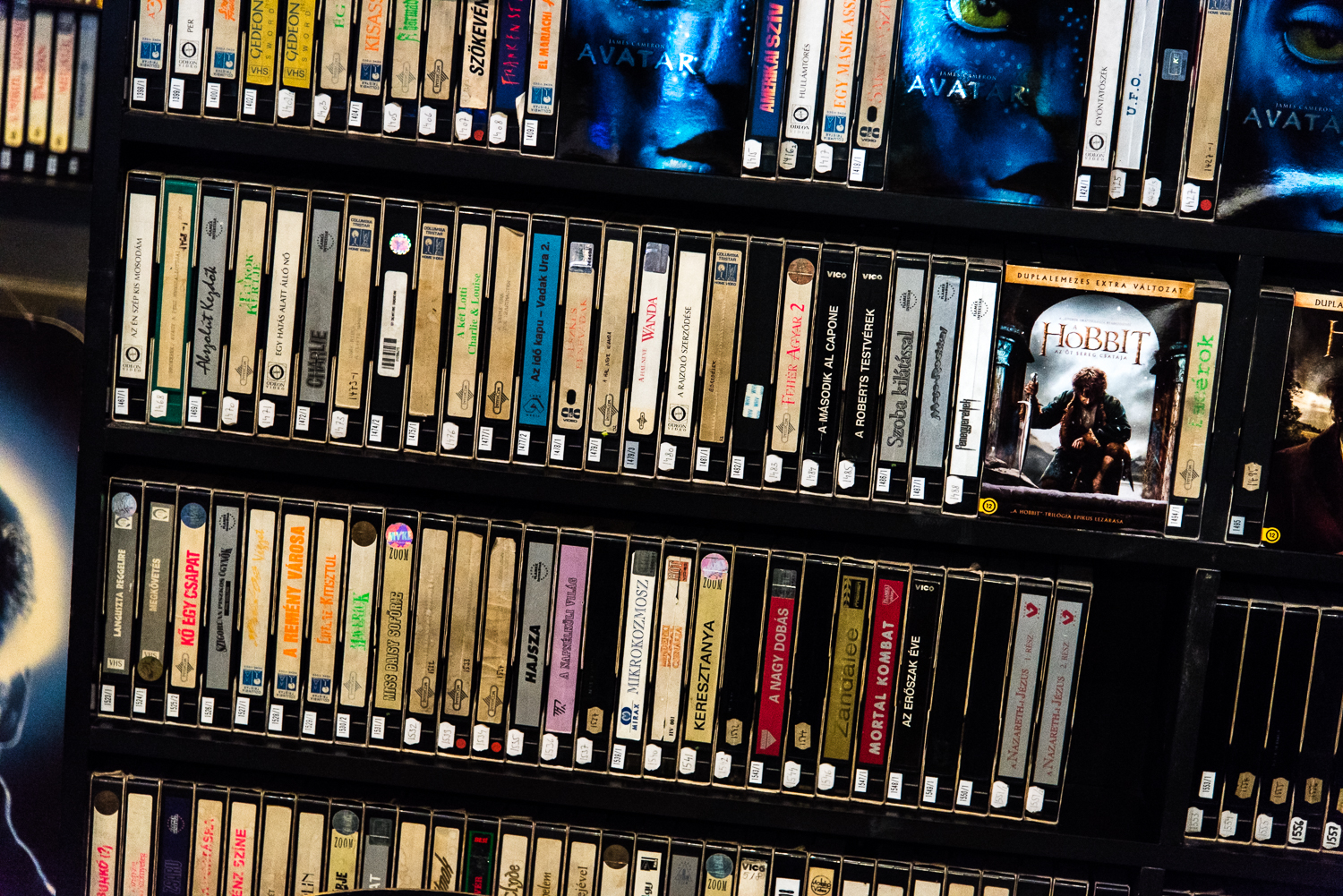Between 1976 to 1996, watching a VHS was one of the most popular family and nighttime activities. To be able to do so in Hungary was a status symbol, since before the end of the communist regime, Magyars could only buy a VHS player in a foreign country or at a so-called “dollar shop”. Everybody was watching the same BASF, JVC, Sony, or Panasonic tapes, as people continually borrowed films from each other, creating only one problem: copying and rewinding the same film again and again resulted in the gradually decrease of picture and audio quality; after a few hundred viewings, a copy of American Ninja seemed to transform Michael Dudikoff into the star of an avant-garde black-and-white art film.

In the ’90s, Hungary’s capital was overcrowded with video-rental stores, but as time passed, tapes were replaced by DVDs and Blu-Rays, and now it seems that illegal file sharing put an end to all of these formats. At Budapest, places that still deal with the old-school tape format are nearly considered museum attractions, even though you can cash in 1,500 pounds if you have the right tape – we suggest that you go through your own VHS collection, as you never know how much somebody else would pay for one of them!

There are still three places in Budapest where you can take some VHS tapes home for just a few forints. The James Dean video rental store on Király Street dates back to 1992, and as owner István Szabó points out, it’s a real pilgrimage destination for movie lovers. “Many people come here because they’ve heard that there is still a functioning VHS store, and they want to see it for themselves. Usually one visitor a day looks specifically for the VHS tapes, because he or she couldn’t find it on DVD or on the Internet, or they are fanatic collectors. It might sound strange, but it’s not only people aged 30 to 40 who come here for some nostalgia. Recently, an 18-year-old became a member, because he hates downloading and chose to browse from our catalogue instead,” says Szabó.
We can easily understand that the shop has its own atmosphere: everywhere you look, visitors see movie posters and other relics – it’s like stepping into the room of the cinema-fanatic guy from Dawson’s Creek. Of course, István Szabó’s collection is a lot bigger: you can choose among 7,000 (!) VHS tapes, and even more DVDs.

This video store, which will go through some minimal renovations in the near future, is truly legendary. István Szabó belongs to those owners who can recommend a film to anybody on first sight, and visitors are truly grateful for that, while Szabó is grateful for his diehard regulars.
“I collect all the gifts from my visitors. I have a James Dean stamp from Cuba, and also a piece from that T-shirt that a girl bought from someone so that she could cut the film star’s face out of it and give it to me. I guess it won’t be surprising that I’m not doing it for the money.” But why did he name his store after James Dean? Because at the time, he was the only actor, whose films were all released in Hungary (because Dean died at a very young age), and it served as a strong basis for his own film fandom.Amongst the Odeon stores that are owned by Budapest Film, one is located at Corvin Cinema and another at Művész Art Cinema. At the latter, you can choose from 5,000 different tapes – but you can also rent a player, if the dust-covred one at home is no longer functioning. In this case, you are charged an additional 300 HUF along with the usual rental price (400 HUF). In this case, we recommend renting as many films as you can at the same time, to get the most out of the rental.

The other VHS-rental location, at Corvin Cinema, has been functioning since 1996, and they have 2,000 different tapes, but don’t worry if you don’t see them at first: they aren’t at the counter or on the shelves. Just like at Művész Art Cinema, membership costs 2,000 HUF, and renting a VHS or a DVD costs 400 HUF.

Most members rent around three or four VHS tapes a week: we can prove it, as during our reporting for this article, we were eyewitnesses to the following incident: somebody was looking for a film that wasn’t released on any other format – but here, at this store that basically functions as a library, they had it. As you can see, visitors usually come looking for a specific title, they seldom ask for recommendations. Here you can find rarities like the original version of Blade Runner from 1982, or Senki földje, directed by the father of Oscar-winning Hungarian director László Nemes, András Jeles.
And does it pay to still trade in tapes? As we’ve heard from the proprietors, they rest on the shelves and in the storehouse, and never ask for food.




